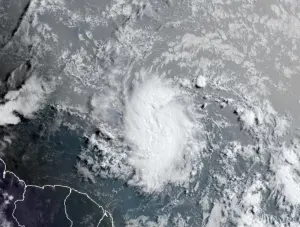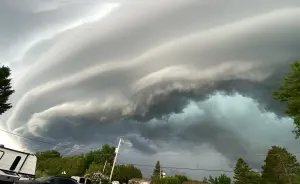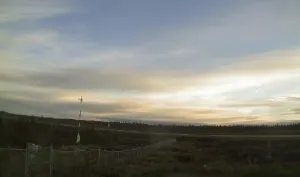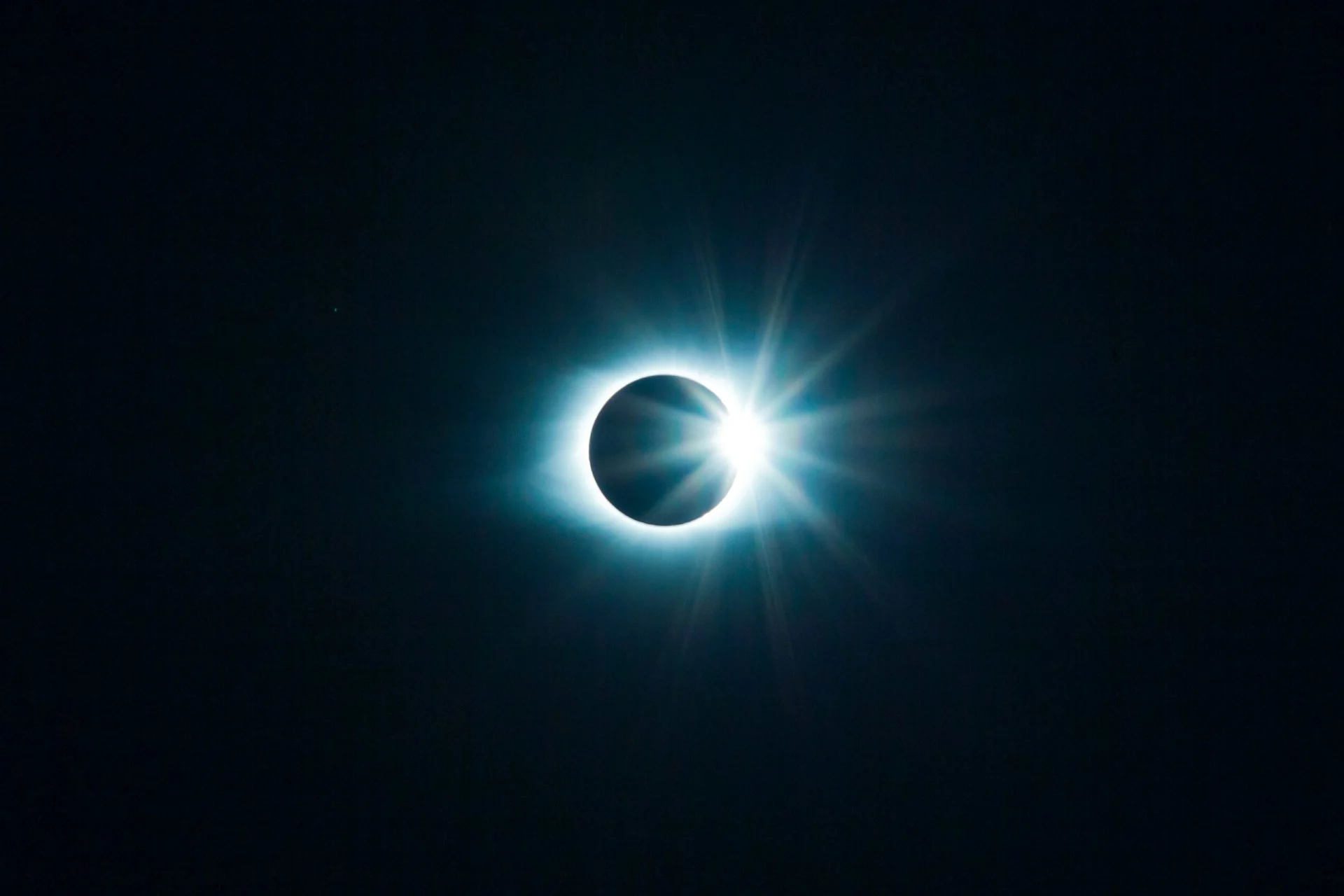
Eye doctor, province ask Manitobans to take precautions ahead of solar eclipse
Eye experts are reminding Manitobans to take precautions before they attempt to get a glimpse of Monday's solar eclipse.
People on a narrow swath of land across North America will have a once-in-a-lifetime opportunity to experience a total solar eclipse come Monday. But Manitobans staying closer to home will still get a view of the moon as it partially covers the sun.
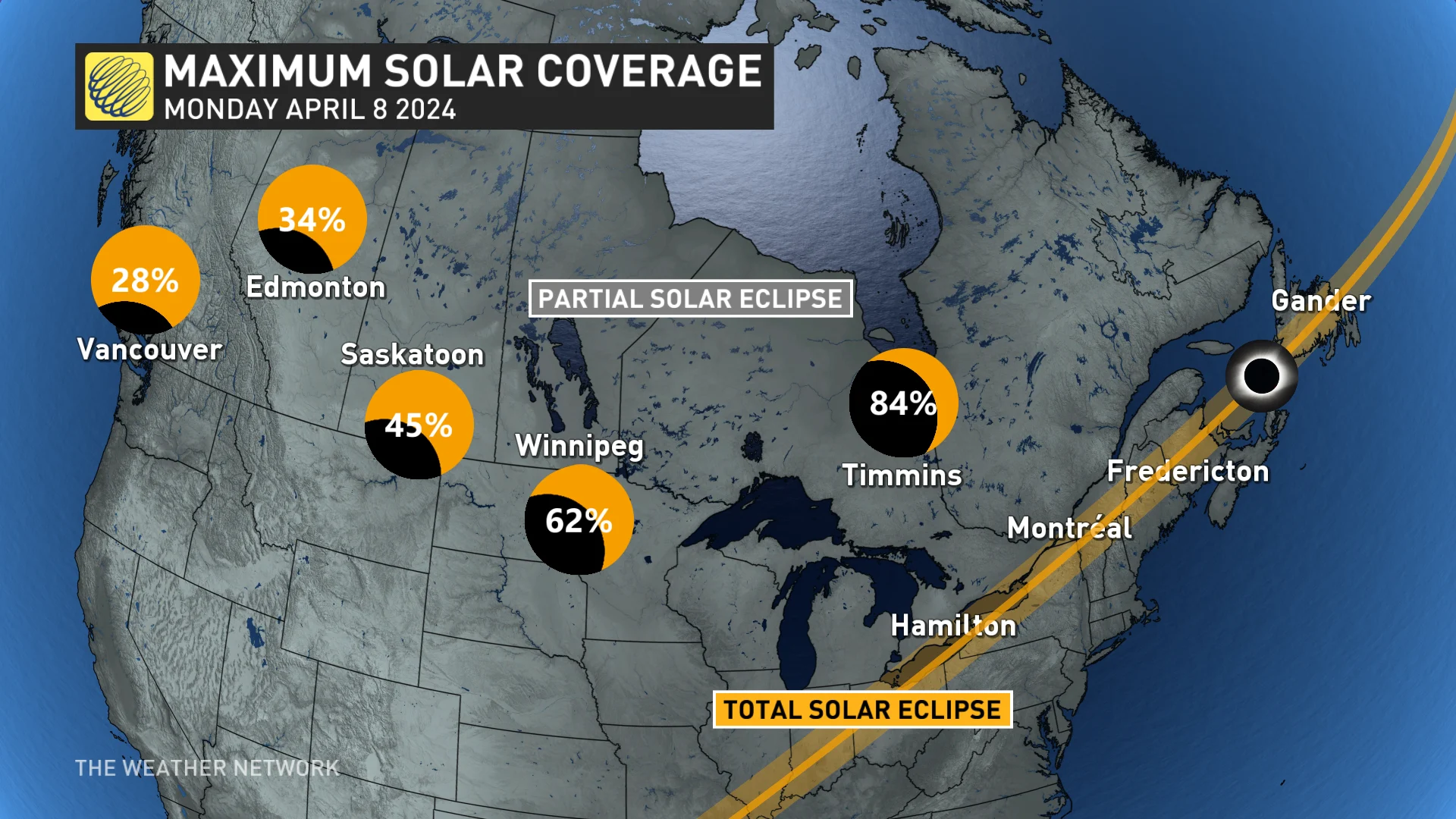
DON'T MISS: Everything you need to know for April's spectacular and rare solar eclipse
While there may be a lot of folks who won't want to miss watching the cosmic event as it unfolds, the Manitoba Association of Optometrists is reminding them staring at the sun with the naked eye is a really bad idea.
"The last time that we had the partial eclipse back in 2017 … there was a lot of scares because the damage can be permanent," said Dr. Irene Mestito-Dao, the association's president.
"When something like this is happening and people start telling you it's a once-in-a-lifetime event, people can't resist."
On Friday, the province issued a release warning people that the risk of eye damage is higher during a solar eclipse. The release said it's less bright, so it's possible to stare at it for a while without the body triggering any of its safety mechanisms.
WATCH: How to capture the solar eclipse with your phone or DSLR camera
STAY SAFE: How to safely watch the April 8 total solar eclipse
"The retina doesn't have any pain receptors. And so when we look up at the sun and as it's causing damage, you can't tell it's happening — sometimes not until a few hours later," Mestito-Dao said.
"When you look away and walk away and everything's fine, and then all of a sudden you might notice that you have a blind spot or a blurry vision, or that there's distortions, sore eyes, red eyes."
People at higher risk of eye damage include outdoor workers, those who are homeless and other vulnerable individuals who may need extra guidance to avoid looking at the eclipse, the province said.
Parents should take extra precautions
It said children are at especially vulnerable because their eyes let in more light.
The province said its shared information with schools and child-care providers to prepare them for Monday.
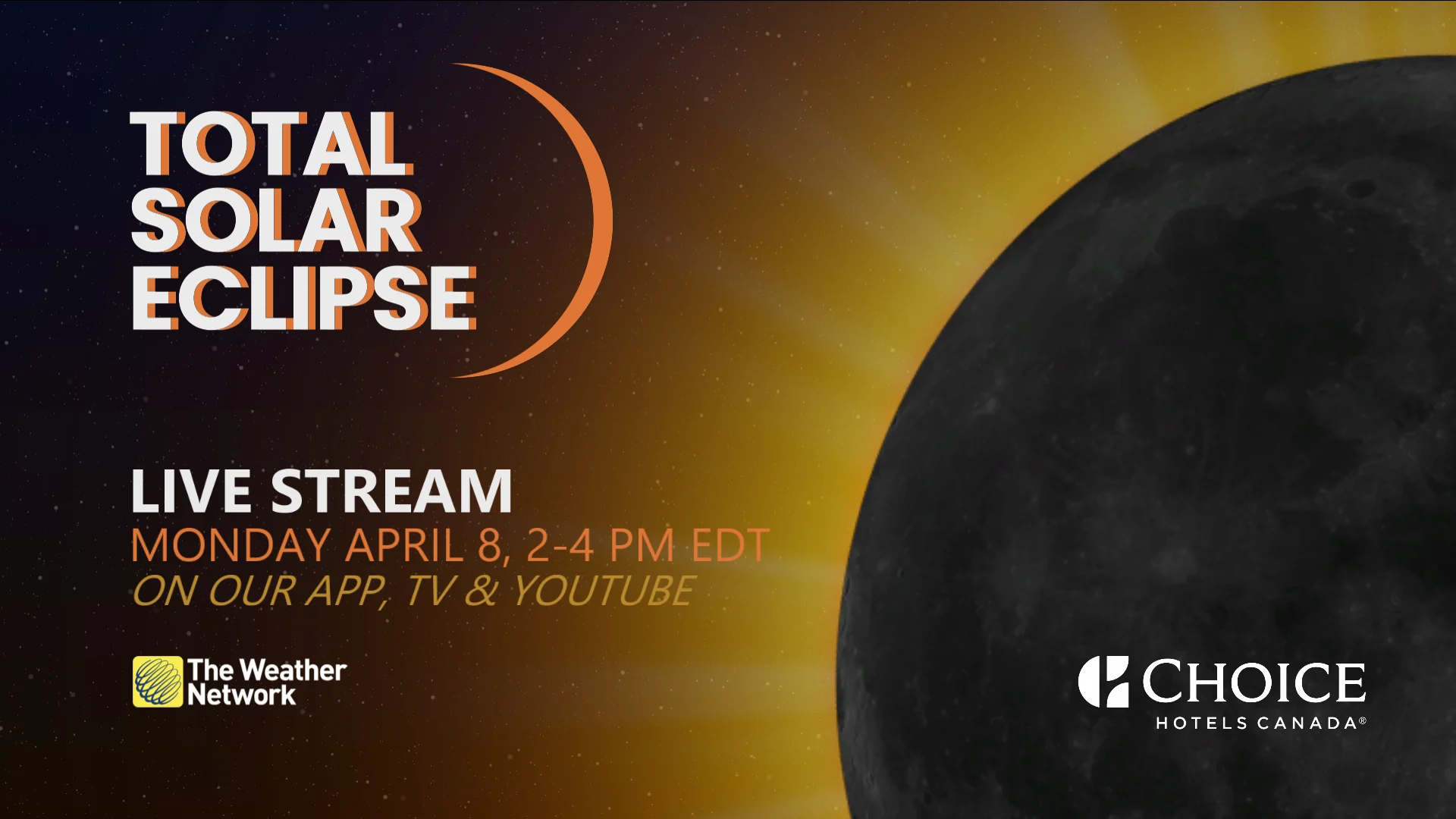
MUST SEE: From auroras to eclipses, clouds aren’t a stargazing deal breaker
Mestito-Dao said parents must make sure their children look back down before they take their solar eclipse glasses off. If the child doesn't have any kind of protection, it's better for them to stay indoors, she said.
The province listed a couple of tips to watch the eclipse safely:
Consider watching it indirectly, on television or online.
Using solar eclipse viewer or filters with a "ISO 12312-2" certification at all times.
Avoid using homemade filters, sunglasses, camera lenses, sunglasses, and smartphones to view the eclipse, or any other item not specifically made for that purpose.
If you're planning to take photos or record it with a phone, wear the certified glasses, use selfie mode and cover your camera with an approved eclipse filter.
"If anyone has any solar glasses, you want to make sure that they're not scratched or damaged because then some lighting is going to get through those glasses," Mestito-Dao said.
"You have to be buying it from a reputable source. And so the online is definitely a concern."
Mestito-Dao said making a pinhole projector to watch the eclipse through a reflection also works.
That's the way she herself saw the total eclipse in 1979 — the last time one was visible in Manitoba.
"I remember going outside. I remember it going dark. And you know, I do remember seeing it," she said. "That's probably, I think the safest one to do since solar filters are hard to find."
This article, written by Arturo Chang, was originally published by CBC News on April 6, 2024. It contains files from Marcy Markusa.
Header image courtesy of Tyler van der Hoeven via Unsplash.






